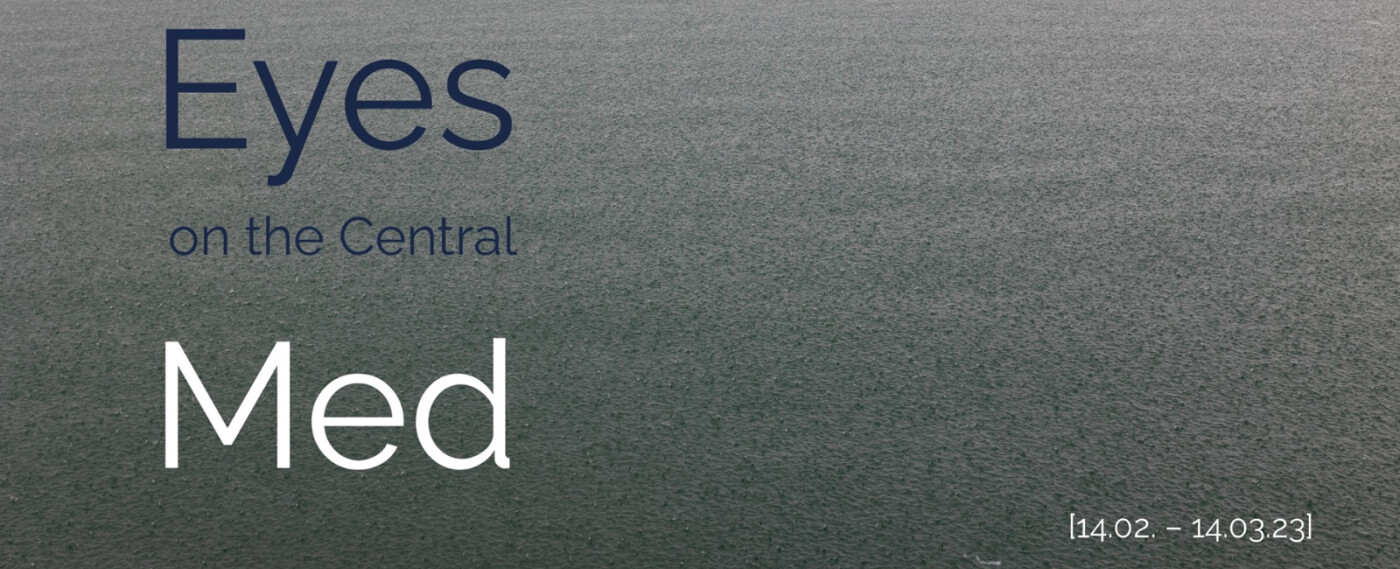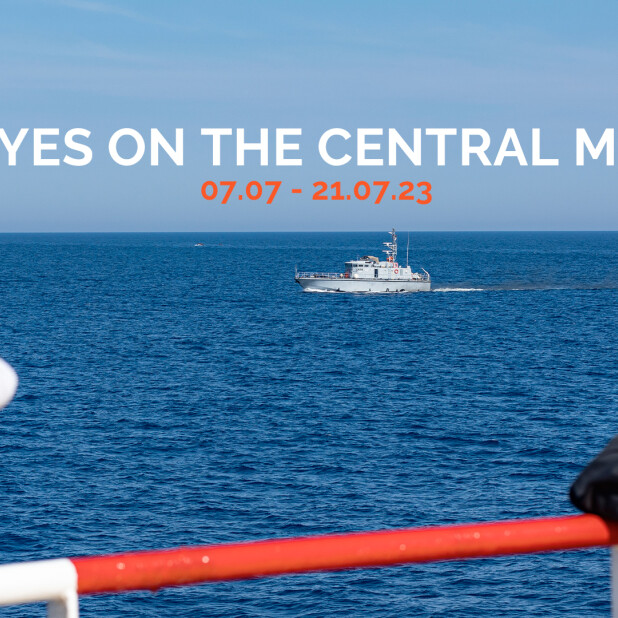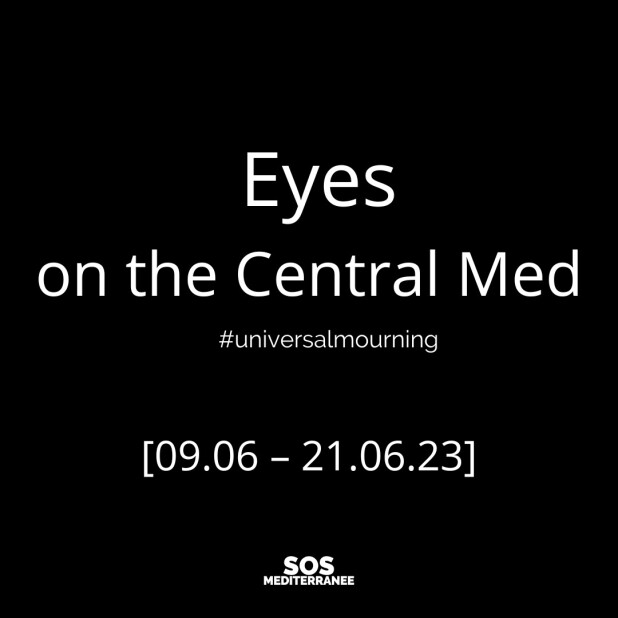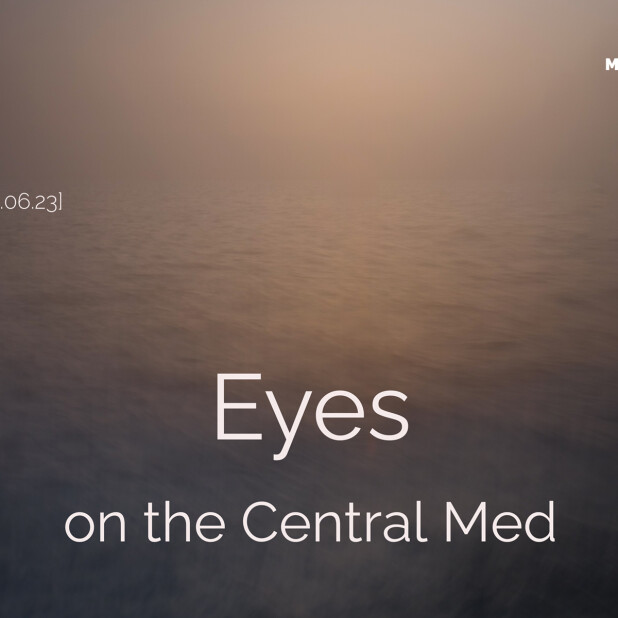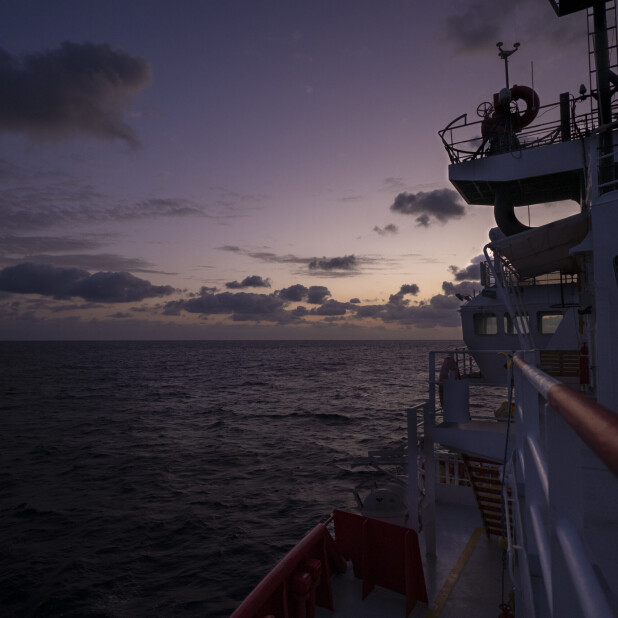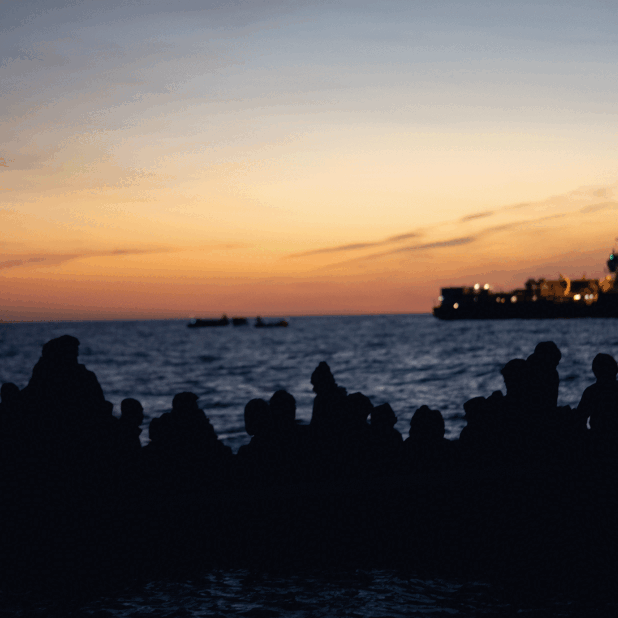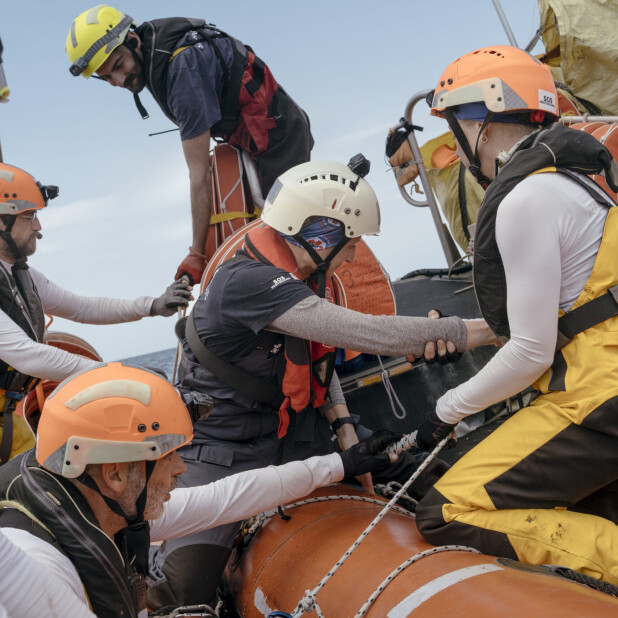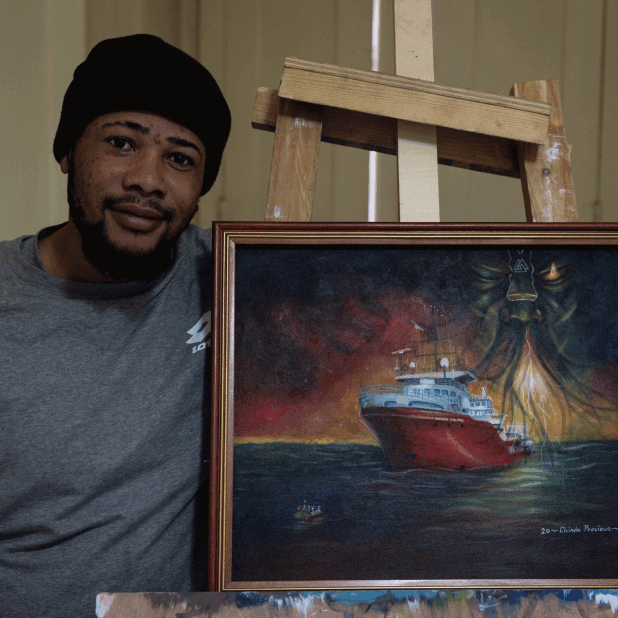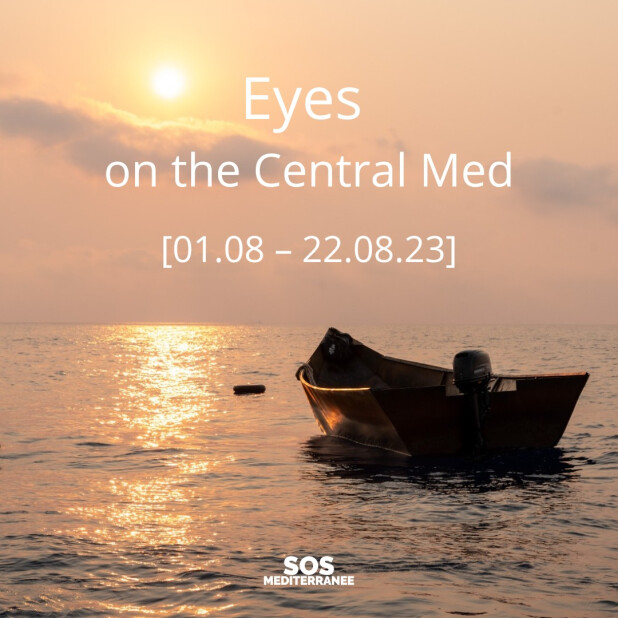
[14.02 – 14.03.23] The following publication by SOS MEDITERRANEE intends to shed light on events which unfolded in the central Mediterranean in the past weeks. It is not intended to be exhaustive, but rather to provide a general update on maritime search-and-rescue-related matters occurring in the area we have been operating in since 2016, based on public reports by different NGOs, international organisations and the international press.
Over four shipwrecks in a month within a blatant ineffectiveness of coordination and dedicated Search and Rescue services
On February 14, at least 73 people died in a shipwreck off the Libyan coast. Seven survivors in extremely dire conditions were taken to the hospital in Libya.
The week after, on February 26, another tragedy occurred in the central Mediterranean, inside Italian territorial waters. At least 98 people died or went missing, including babies and women, in a shipwreck in Cutro, on the southern Italian coast of Calabria. The boat had departed from Turkey four days earlier, with over 200 people onboard and sank while attempting to land after it crashed into rocks in rough weather conditions. According to different media reports and to Frontex, the latter spotted the dinghy via aerial surveillance a day before the tragedy and relayed the information to the Italian authorities. The Italian authorities launched a law enforcement operation rather than a search and rescue operation in sending two patrol boats of the Italian financial guards that eventually had to return to port because of weather conditions. More than 40 Italian and European civil society associations submitted a collective complaint to the Public Prosecutor’s Office at the Crotone Court asking for an investigation into the Cutro shipwreck to shed light on the responsibilities of Frontex and of the Italian authorities in the deaths of these people.
On March 11, 30 more people died in the central Mediterranean, during a late rescue, following a delayed coordination of the search by competent maritime authorities. The civil hotline for boats in distress Alarm Phone and the Seabird2 airplane of the German NGO Sea-Watch both sent multiple distress alerts to all relevant maritime authorities hours before the tragedy. On March 10 evening, Alarm Phone sent a distress alert for a boat carrying 47 people off the Libyan coast and informed the competent maritime authorities. Merchant vessels were in the vicinity of the boat in distress but were not instructed to intervene according to Alarm Phone and the German Search and Rescue NGO Sea-Watch. According to the evidence reconstructed by Alarm Phone and Sea-Watch, “the 30 people who died could be still alive, if only the Italian and Maltese authorities had decided to immediately coordinate a proper rescue operation.”
The International Organisation for Migrations (IOM) recorded 248 deaths due to shipwrecks in the central Mediterranean since February 14, 2023. The scale of the tragedy unfolding in this stretch of the sea is most likely highly underestimated due to possible numerous shipwrecks without witness. Often, these lives could have been saved if maritime coordination of Search and Rescue operations were efficient in the Mediterranean, and if International waters of the central Mediterranean had not been emptied of European-State-led Search and Rescue dedicated assets.
NGO ships further criminalised triggering critics from UN and European agencies
As NGO ships keep filling the gap left by European Member States in the central Mediterranean and in light of the new Italian decree converted into law on February 15, distant place of disembarkation of survivors are designated and ships are under sharp scrutiny. International organisations, such as the Council of Europe and the UN Human Rights office, expressed their concerns over such practices hindering life-saving assistance in the Mediterranean. Furthermore, the Commissioner for Human Rights Mijatović further reiterated her call on the Italian authorities to suspend co-operation with the Libyan Government on interceptions at sea, as 1,484 people were forcibly returned to Libya to a quasi-systematic arbitrary detention within the past month.
On February 14, Ocean Viking evacuated 84 people including 58 unaccompanied minors from an overcrowded dinghy in distress in International waters off Libya. Ravenna, in the North of Italy was directly assigned as a port of disembarkation, four days of navigation away from where the rescue operation took place.
On February 16, Aita Mari of the NGO Salvamento Maritimo Humanitario rescued 31 people and disembarked them in Civitavecchia three days after. On February 21, back in the central Mediterranean, Aita Mari rescued 40 people from a metal boat and assisted another dinghy with similar characteristics who was rescued by Italian coastguard. The survivors were then disembarked in Ortona, 750 Nautical Miles (1389 kms) away, on February 25.
On February 16, Life Support of the NGO Emergency performed two rescues, evacuating a total of 156 people from distress. Civitavecchia was swiftly assigned as a place of safety for the survivors. The ship performed another rescue on March 7, evacuating 105 people from a rubber boat in distress. Brindisi, an Italian port city on the Adriatic Sea, was designated to disembark the survivors.
On February 17, Geo Barents of the NGO Médecins Sans Frontières (MSF) disembarked 48 survivors rescued on February 13 in Ancona. A week after, on February 23, the Geo Barents was administratively detained for a period of 20 days by the Italian authorities and fined of 10,000€. According to information relayed by Rai News, Médecins Sans Frontières explains that “the Port Authority of Ancona contests the medical organisation in light of the new decree, for not having provided all the information requested”. It’s the first time a civil ship dedicated to Search and Rescue in the central Mediterranean suffers from an administrative detention and a financial penalty defined by the Italian decree-law ratified in the beginning of the year.
Surge of arrivals in Italy via the sea these past two weeks, mainly from Tunisia
According to the data of the Italian ministry of Interior, over 20,000 people arrived in Italy since the beginning of March. Some of people arrived autonomously, others were rescued by Italian coastguard, merchant vessels or SAR NGO ships. As of March 1, the researcher Matteo Villa analysed that out of all arrivals in Italy in 2023, only 7.7% were rescued by NGO ships.
Data show that the surge of arrivals in Italy is mainly driven by the political situation in Tunisia, as sub-Saharan populations are increasingly targeted by arrets and assaults in the country after President Kaïs Saïed violent false accusations on February 21. Tunisian accommodating foreigners in need are also liable to fifteen days in prison and a fine. According to freelance journalist in Tunisia, hundreds of people are waiting in front of United Nations offices asking to return to their country of origin, so far in vain.
